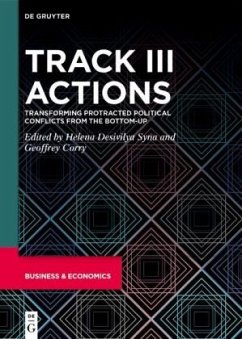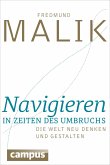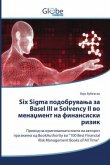Since the end of the Cold War in the early '90s, a multi-track approach to peacemaking has been developed by academics and practitioners to bring political and civil society leaders together from across the divide of contested societies to find ways out of the conflict. Much of the focus up to now has been given to the strategic contribution of Track II conflict analysis and problem-solving workshops.
This book puts the spotlight on the role that grassroots leaders and citizens can play at Track III level in the community in building and strengthening a bottom-up approach to conflict transformation following protracted conflicts. In Part 1, the focus is on the post-conflict situation of Northern Ireland twenty years after the Belfast Good Friday Agreement. Part 2 portrays scholarly and practitioners' perspectives and actions in communities and organizations designed to build partnerships in order to counteract the legacies of active protracted conflict.
Plots the role of Track III approaches within a multi-track peacemaking pyramid in the protracted conflict and post-conflict phases of confl ict transformation. Provides case studies on how to engage community leaders in thinking together how to work with deep-seated legacies of protracted conflicts. Explores the contribution of bottom-up models to build intergroup partnerships within and between local communities. Focuses on the interface between research and practice.
Hinweis: Dieser Artikel kann nur an eine deutsche Lieferadresse ausgeliefert werden.
This book puts the spotlight on the role that grassroots leaders and citizens can play at Track III level in the community in building and strengthening a bottom-up approach to conflict transformation following protracted conflicts. In Part 1, the focus is on the post-conflict situation of Northern Ireland twenty years after the Belfast Good Friday Agreement. Part 2 portrays scholarly and practitioners' perspectives and actions in communities and organizations designed to build partnerships in order to counteract the legacies of active protracted conflict.
Plots the role of Track III approaches within a multi-track peacemaking pyramid in the protracted conflict and post-conflict phases of confl ict transformation. Provides case studies on how to engage community leaders in thinking together how to work with deep-seated legacies of protracted conflicts. Explores the contribution of bottom-up models to build intergroup partnerships within and between local communities. Focuses on the interface between research and practice.
Hinweis: Dieser Artikel kann nur an eine deutsche Lieferadresse ausgeliefert werden.








